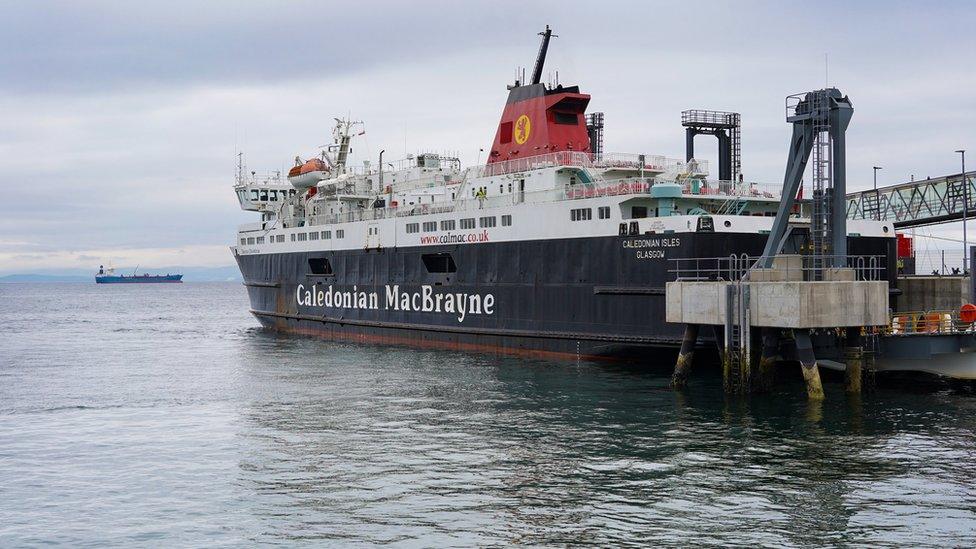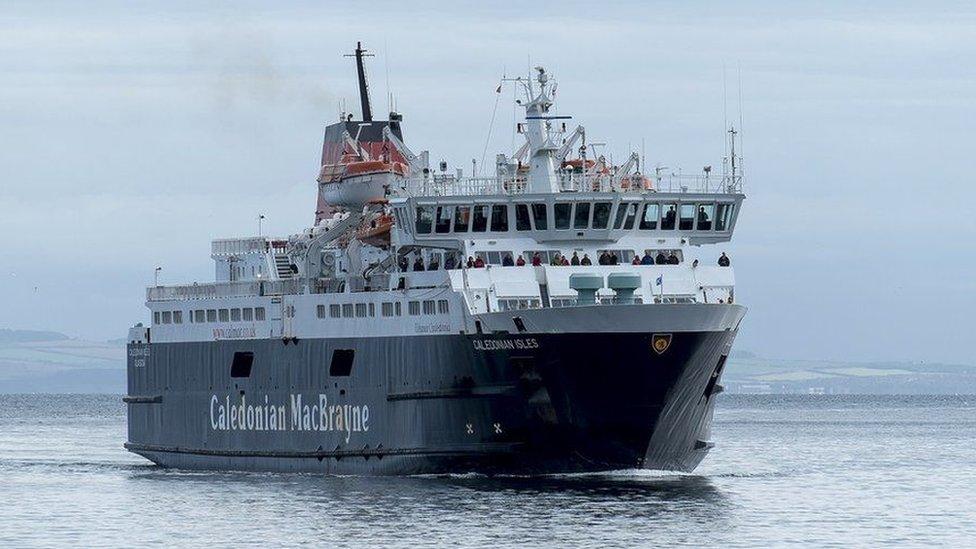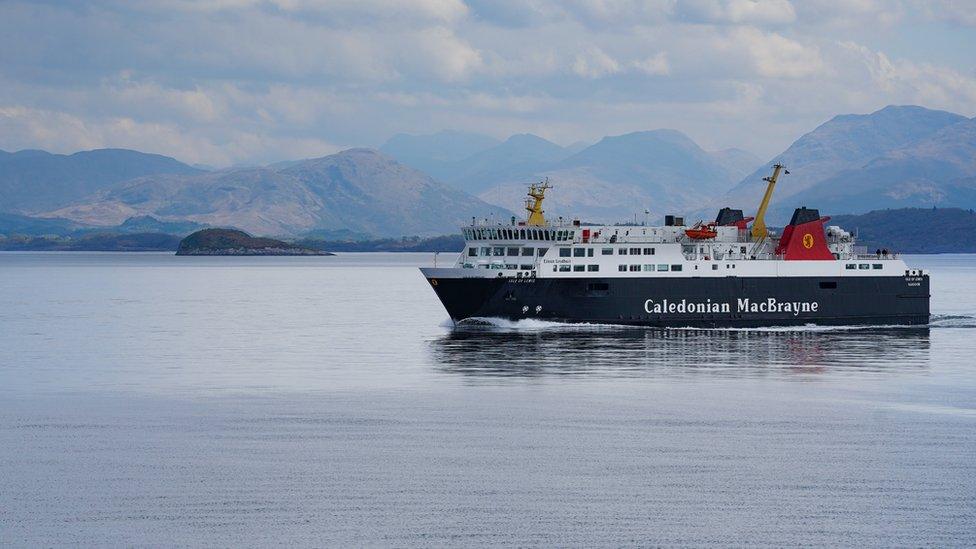CalMac's main Arran ferry resumes sailings after repairs
- Published

The main Arran ferry has returned to service after repairs were completed sooner than expected.
MV Caledonian Isles has been out of action since 17 April after engine damage while berthing in Ardrossan.
Sailings were expected to resume on 3 May, but operator Caledonian MacBrayne said sea trials were now complete.
A smaller ferry, MV Isle of Arran, had continued providing services to Arran in the interim, but customers had been unable to book ahead.
The resumption of a two-boat service between Ardrossan and Brodick, from 07:00 on Friday, means sailings between Ardrossan and Campbeltown can also now return to a timetabled service on Friday evening.
In a statement on its website,, external CalMac said: "We would very much like to thank our customers for your patience, your response to the situation and for the support shown.
"A disruption of this nature is challenging for you and the communities we serve - this fact is always at the forefront of our minds throughout the period."
VisitArran chief executive Sheila Gilmore told the BBC's Good Morning Scotland programme the early resumption of sailings was extremely welcome.
She said: "The reputational damage was that some people thought they weren't going to get their holidays in June or July, and maybe thinking they don't want to go to Arran.
"So this happening now, ahead of when we had hoped, is even better news. Let's kick off with a really good holiday weekend then come and experience all that we have to offer."
Ageing fleet
The latest ferry breakdown has focused attention on the challenges facing the CalMac fleet where the average age of vessels is about 24 years, with some of the larger ships much older.
In a BBC interview last weekend, CalMac managing director Robbie Drummond said the money being spent on maintenance had risen by nearly 70% over the past five years.
"We are running an ageing fleet. Nearly a third of our vessels are beyond their normal expected lifeline, so we are doing everything we can to keep our fleet going," he told Good Morning Scotland.
"What we do need is new vessels, and what we urgently need to see is a long-term plan for replacement vessels and replacement ports, and an accelerated procurement programme that starts to put in place a standard fleet that operates to standard ports.
"That will make a huge difference running across our network."
Related topics
- Published22 April 2022

- Published13 May 2022
